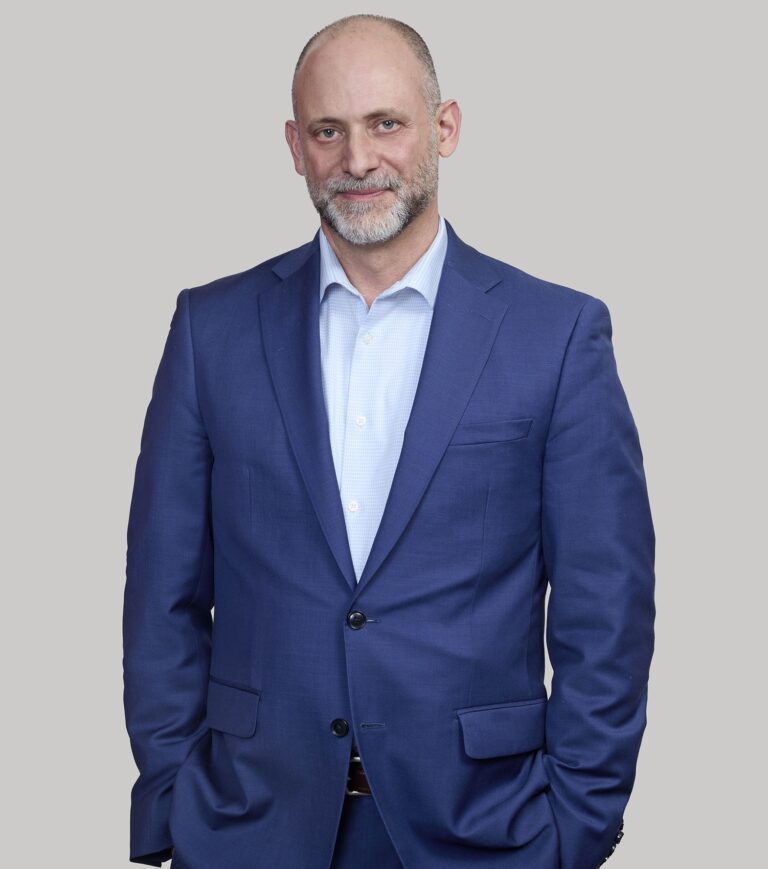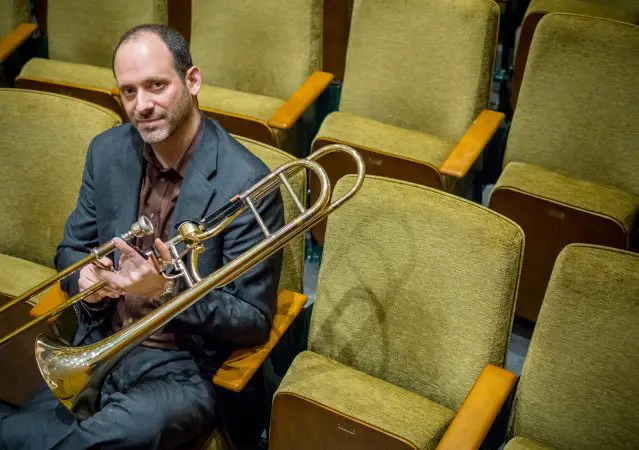“If you resource students, they’re capable of anything.”
Music education holds a power greater than most people realize. Time and time again, studies have repeatedly shown its benefits for youth well-being and brain development, ultimately leading to improvements in a wide range of practical skills.
For Anthony Mazzocchi, music is a valuable aspect of education whether for children, adolescents, or adults. With a lifelong career dedicated to music, he has continuously demonstrated his passion for improving music education for today’s students and future generations to come.

Growing up in New Jersey before the nationwide shift towards standardized testing and data-driven instruction, Mazzocchi benefited from a school system that focused on finding one’s passion. A public school trombone program first drew him to music. The shared community of student musicians, supportive instructors, and encouraging environment from 4th grade through high school felt good to Mazzocchi. This early environment shaped his own path in music and education as time went on, he hoped that what is old would once become new again.

Early in his career, Mazzocchi lived in Los Angeles as a professional musician, playing with acclaimed ensembles such as the Los Angeles Philharmonic and San Diego Symphony. But a call from a Brooklyn principal looking to start a band program shifted his path. Mazzocchi moved back to the East Coast to help establish the program and see it grow. What began as a short-term project turned into decades of work. He discovered a passion for helping underrepresented students access music and saw firsthand what could happen when they had the right support.
In the education field, Mazzocchi saw different outcomes for every student expressing their own selves. Mazzocchi saw music as a level setter: a space where students from various backgrounds and cliques came together to create something larger than themselves.
His education career did not just stay with youth, but expanded to university level instruction. Since 2020, Mazzocchi has served as Director of the John J. Cali School of Music at Montclair State University, where he previously held the role of Associate Director. There, he developed a Recording and Production Arts degree to expand the definition of what a music education includes today. At colleges and universities, music programs were structured and rigorous. By creating the degree and expanding the music program, even more students could find potential as musicians. It gives them the opportunity to dive deeper into the music field, and open minds to endless possibilities.
We were discounting a lot of people who were also musicians.
Anthony Mazzocchi
Since 2010, he has served as the executive director of the Kinhaven Summer Music School in Weston, Vermont. Mazzocchi has significantly expanded programs and financial foundations at the school, leading efforts to establish the nation’s first semester boarding school for music and developing tuition-free programs for young musicians.
After playing a large role in the Kinhaven Summer Music School– a program that is designed for students who want to immerse themselves in both music and nature and allows for no phones, students are truly transformed– Mazzocchi wondered how to do something similar during the school year. He wanted to develop a similar program, one semester long. It took twelve years, but the effort paid off. The program launches in September and creates an immersive experience for passionate student musicians.
This past winter, Mazzocchi was named Executive Director of Kaufman Music Center. There, he is focused on combining high-level artistry with broad educational access. In practice, this looks like a specific K-12 school model for public education, titled the “Special Music School.” This school provides students with an intensive and immersive music education program, with fully funded lessons, music classes and ensembles alongside academics.
Unlike most public schools, where arts are often treated as extracurricular, the Special Music School positions music as a core subject, fully integrated into students’ daily education. This approach challenges the conventional layout of school subjects and redefines what a well-rounded education can look like.
To better reflect the diversity of New York City, Mazzocchi plans to follow a “pathways program.” Where students with a strong passion for music but need for the proper resources are found, and the school will build resources around them. With that pathway model, diversity of all types comes with it.
Mazzocchi describes access to high-quality arts education as a public service, not a luxury.
“It’s for everybody,” Mazzochi said.
Rather than being nurtured, music is taught out of us in schools. Necessary resources become limited, especially for those in underrepresented schools, contributing to this mindset that society has grown accustomed to– that high-quality arts education is solely a luxury.
This shift in mindset could reshape public perception and allow for more funding and resources specifically for music educators, programs and student musicians themselves, as they grow into a world where they can create and find their own passion.
Mazzocchi’s impact goes beyond program-building. He’s led orchestras, classrooms, nonprofits, and summer programs, and continues to push for music education. His TEDx talk, “What Can a Trombone Choir Teach the World About Collaboration and Leadership,” highlighted his commitment to music as a means of fostering teamwork and cooperation.
The people make the place. The people I surrounded myself with have unbelievable thoughts. If you put your ego aside, you’ll create something better.
Anthony Mazzocchi
He humbly attributes his own successes as the successes of other people, always emphasizing collective achievement.
In the TEDx talk, he uses a trombone choir to explore collaboration and leadership. Music ensembles demonstrate that in building effective teams, the result created together is greater than what’s created individually. What can musicians teach everyone else? While individual skill is essential, the success of an ensemble depends on the ability to work together. Without strong collaboration, the ensemble cannot function.
As the future of arts institutions continues to evolve, Mazzocchi views the balance of excellence and equity evolving with a “rebirth” of music education. K-12 is a time where students are most impressionable. Intertwining music education in these early education fields, allows for young students to gain more dignified access to music of all types and grow into their passion.
Life in the arts is not for a chosen few, it’s for everyone.
Anthony Mazzocchi
By reshaping the perception of music– not as an extracurricular, but as essential– Mazzocchi is helping build a future where every student has the opportunity to discover the music within themselves. A future where music fosters connection, resilience, and hope.
With the right direction and resources, children, adolescents and adults can thrive, not just as musicians, but as people. In doing so, they build stronger communities and a more vibrant future for us all.


Comments are closed.